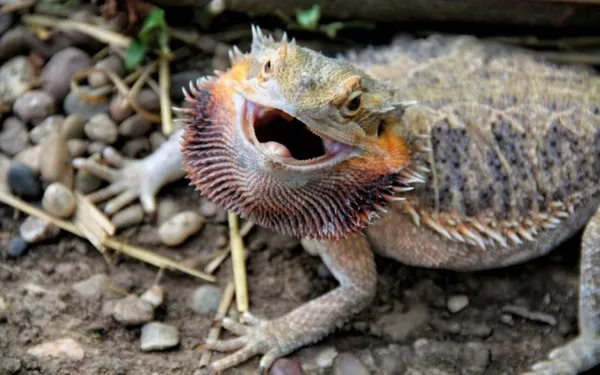Bearded dragons are one of the most popular reptile pets, thanks to their gentle temperament, low maintenance requirements, and unique appearance. However, one of the most important aspects of owning a bearded dragon is ensuring that it has a healthy and varied diet. In this article, we’ll explore what bearded dragons like to eat the most and why it’s important to feed them a diverse range of foods.
What Do Bearded Dragons Like to Eat the Most?
Bearded dragons are omnivores, which means they eat both plant and animal-based foods. In the wild, they primarily eat insects, but they also consume vegetation such as flowers, fruits, and leaves. Bearded dragons are opportunistic feeders, which means they will eat whatever is available to them. However, they do have preferences when it comes to food.
- Insects
Insects are a staple food for bearded dragons, and they should make up around 80% of their diet. Crickets, mealworms, and Dubia roaches are popular choices, as they provide a good balance of protein, fat, and nutrients. Other insects such as silkworms, waxworms, and hornworms can also be fed in moderation.
It’s important to note that not all insects are suitable for bearded dragons. Insects caught in the wild may be contaminated with pesticides or other harmful chemicals, so it’s best to purchase insects from a reputable breeder or pet store.
- Vegetables and Fruits
In addition to insects, bearded dragons also need a variety of vegetables and fruits in their diet. These provide essential vitamins and minerals that are not present in insects alone. Some of the best vegetables for bearded dragons include collard greens, kale, mustard greens, and dandelion greens. Fruits such as berries, melons, and apples can also be offered as occasional treats.
It’s important to avoid feeding bearded dragons certain types of vegetables, such as spinach and broccoli, as these contain high levels of oxalates which can bind to calcium and prevent its absorption.
- Commercial Diets
Some owners may choose to feed their bearded dragons a commercial diet, such as pellets or canned food. While these can be convenient, they should not make up the majority of a bearded dragon’s diet. Commercial diets are often high in carbohydrates and low in protein, which can lead to health problems over time.
- Water
Bearded dragons also need access to clean water at all times. A shallow dish of water should be provided in their enclosure, and the water should be changed daily to prevent the growth of harmful bacteria.
Why Is a Diverse Diet Important for Bearded Dragons?
A diverse diet is essential for bearded dragons to ensure they receive all the nutrients they need to stay healthy. Feeding them a varied diet also helps prevent boredom and encourages natural foraging behaviors.
One of the key nutrients that bearded dragons need is calcium, which is essential for bone growth and health. In the wild, bearded dragons obtain calcium by basking in the sun, which stimulates the production of vitamin D3. Vitamin D3, in turn, helps the body absorb calcium from the diet.
When bearded dragons are kept as pets, they may not have access to the same amount of sunlight as they would in the wild. This can lead to a calcium deficiency, which can cause a condition known as metabolic bone disease. This can lead to weak bones, stunted growth, and other health problems.
To prevent this, bearded dragons should be offered a variety of calcium-rich foods, such as calcium-fortified insects and leafy greens. It’s also important to provide a source of UVB light in their enclosure, which helps the body produce vitamin D3.
In addition to calcium, bearded dragons require a range of other nutrients in their diet, including protein, fat, vitamins, and minerals. By offering a diverse range of foods, owners can ensure that their bearded dragons receive all the nutrients they need.
Feeding a bearded dragon a healthy and varied diet is essential for their overall health and well-being. Insects should make up the majority of their diet, but they also require a range of vegetables, fruits, and other foods to ensure they receive all the nutrients they need. By offering a diverse range of foods, owners can help prevent health problems and encourage natural foraging behaviors.


























